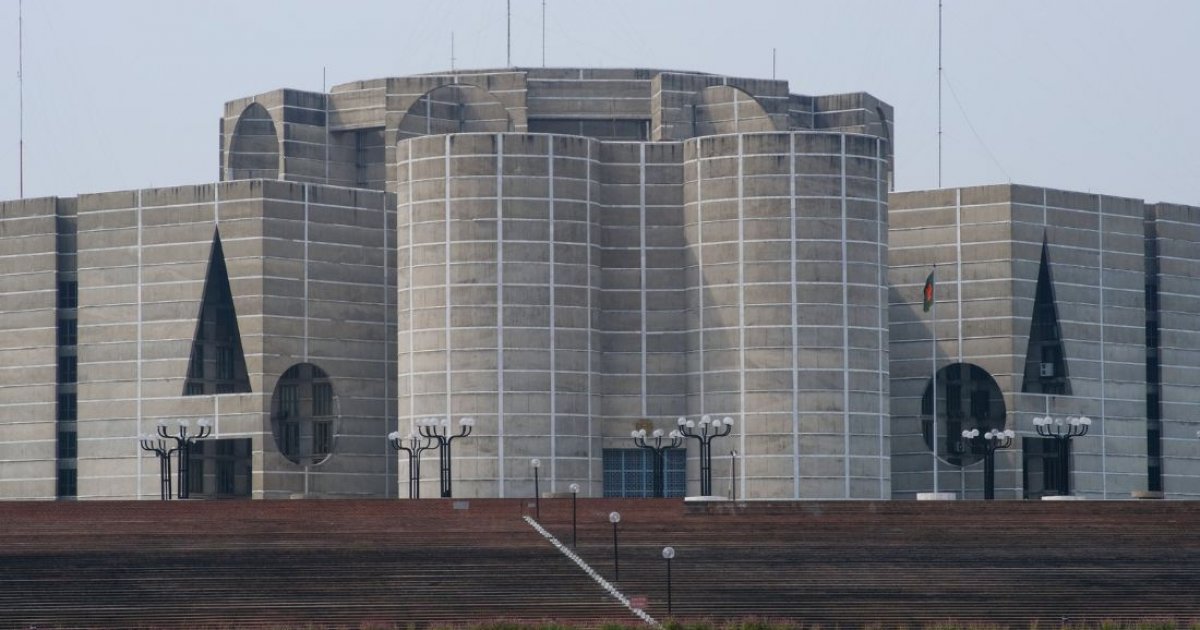In parliamentary sessions, we hear parliamentarians proposing certain policies. The real question is, as we believe, whether those proposals are backed by evidence or not. If so, how was this evidence analyzed and what impact could the proposed policy have on the public? These are very important questions. Bangladesh is awaiting for the national election through which a democratically elected government would take power. Right now, many reform proposals are being discussed in multiple settings to make the government more accountable. Political parties are actively taking part in the discussion and positioning their proposals. We believe it’s the right time to talk about the necessity of establishing an evidence unit at the parliament of Bangladesh to facilitate evidence-informed policymaking. Parliamentarians are often stretched by multiple priorities and political commitments, which is why we believe establishing a non-partisan evidence unit is essential. Such a unit could support them in making evidence-informed decisions.
Before jumping into the necessity of having an evidence unit at the parliament, we would like to discuss what evidence-informed policymaking means and why it is important. We believe this discussion is important for our readers as it would show why we are advocating for an evidence unit for the parliamentarians. We will keep our arguments succinct and precise.
Public policies are government decisions and actions aimed at addressing public issues—problems that significantly impact public life. For instance, a high rate of school dropouts is a public problem. Why is it considered so? School dropouts lead to numerous adverse outcomes. For example, low educational attainment results in low employability, which can increase the likelihood of delinquent behavior, causing social unrest, violence, and disruptions in public life. Besides, low educational attainment is associated with several serious health-related outcomes. For instance, a woman with limited formal education may not know how frequently a pregnant woman should seek professional healthcare, which is crucial for ensuring a safe delivery and reducing neonatal and maternal mortality rates. Similarly, parents with low educational attainment may be more likely to marry off their daughters at an early age, leading to early pregnancies and higher maternal and neonatal mortality rates. All these factors negatively impact public life. Therefore, the issue of school dropouts concerns people from all segments of society, making it a significant public problem.
The Government is the entity to deal with the public problems. What governments do is they formulate and implement public policies to deal with public problems like high school dropouts. That’s where the role of evidence comes into play. How would we know what intervention might work best to reduce school dropout without evidence? We simply can’t. That’s why public policies are supposed to be evidence-informed. A policy which is not evidence-informed is not capable of bringing the desired change and the expected outcomes which often results in policy failure and wastage of public resources – something we want to avoid. This is especially crucial for a developing country like Bangladesh, which faces significant resource constraints.
Therefore, evidence-informed policymaking is important for a country like Bangladesh. Parliamentarians play a pivotal role in the policy making process. They have the opportunity to engage with the policy making process in every stage of the formulation of a public policy – as a minister, as a member of the parliamentary standing committees and as a parliamentarian. An evidence unit at the parliament can facilitate them with necessary evidence for or against the proposed policy solutions and the alternatives. We are advocating for establishing an evidence unit for the parliamentarians at the parliament as we believe that readily available evidence for each of the policy options will enable the parliamentarians to make more informed decisions.
Evidence in public policy is not as simple as they appear. There are different types of evidence in public policy. Also, there is a hierarchy of evidence. Arranging appropriate evidence, therefore, is a rigorous task which parliamentarians may not be able to do efficiently given the responsibilities and the time constraint they have. An evidence unit, thus, seems to be a useful resource for the parliamentarians to make informed decisions and to create and implement more robust policy interventions.
There are numerous examples where parliaments have the channels to collect evidence. For example, the UK parliament has dedicated websites and channels through which experts can provide evidence on a debatable issue to the select committees of the parliament – committees that oversee government policies and actions. Developed democracies like New Zealand or Australia also have similar mechanisms. In the UK House of Commons, Parliamentary Office for Science and Technology, otherwise known as POST, supports the parliamentarians by providing research findings through a three-to-four–page document called POSTnote – a peer-reviewed summary of the research findings. The US congress has a number of congressional resources and support agencies along with the Congressional Research Service (CRS) to help the members of the congress gather evidence. The European Union has the European Parliamentary Research Service (EPRS) which offers comprehensive research, analysis and information services to Members of the European Parliament.
We propose the establishment of an evidence unit in the Parliament that would gather the necessary evidence for the policies under consideration. The creation of such a unit will strengthen accountability and oversight, promote inclusive policy development, and, overall, improve the quality of policies and legislation. It is pivotal that the parliamentary evidence unit is tailored and adapted to Bangladesh’s political landscape. This means ensuring that it aligns with the country’s legislative priorities, institutional structures, and decision-making processes. It must be resilient and flexible enough to respond to evolving policy challenges, shifts in governance, and emerging socio-economic trends.
We acknowledge that policymaking is a political process involving numerous value judgments by the policymakers, including members of Parliament. However, prioritizing evidence in decision-making can lead to greater policy success. We firmly believe that use of evidence in the policy making can ease the decision making process, lead to better policy outcomes and an accountable government – an agenda that we all have.
Md Zobayer Hossain is an associate professor, Development Studies Discipline, Khulna University & YPF Fellow for Politics & Governance. Mowmita Basak is an advocacy manager of Lepra & Head of Policy Courses, YPF.



